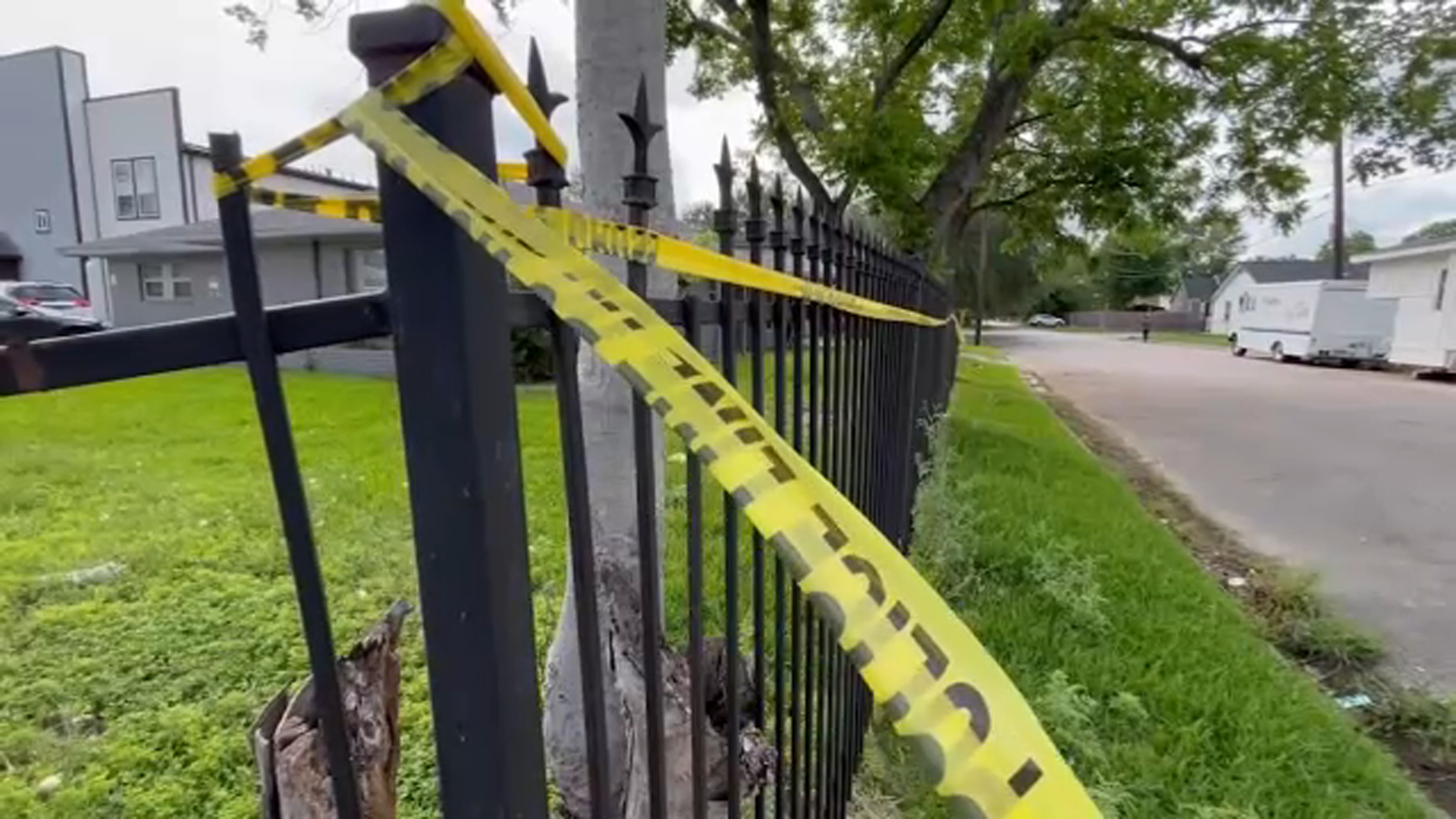Psychiatrist paints disturbing image of Santa Fe HS suspect's mental state

GALVESTON COUNTY, Texas (KTRK) -- All sides rested Thursday afternoon in the civil case against the admitted Santa Fe High School shooter and his parents.
Some of the victims and their families filed the suit shortly after the May 18, 2018, mass shooting, claiming that Antonios Pagourtzis and Rose Maria Kosmetatos were negligent for allowing their son, Dimitrios, access to their firearms and not getting him mental health treatment.
On the trial's 12th day, Dr. Bradley Peterson, a psychiatrist, testified over a video call. Peterson interviewed Pagourtzis for three consecutive days within a year of the shooting.
Dimitrios was diagnosed with schizoaffective disorder, Tourettes, social anxiety disorder, psychosis, OCD, a probable transvestite disorder, and anorexia, which was in remission.
Dr. Peterson said both through Dimitrios' behaviors and what he said during the interview, it was apparent he suffered from a psychotic illness.
He said Dimitrios described his mental health state as a "smoldering psychosis into a worse psychosis."
The attorney for Dimitrios' parents asked why things seemed to escalate for the then-17-year-old from December 2017 to May 2018.
SEE ALSO: 'He's taunting us': Testimony resumes in civil trial against parents of accused Santa Fe HS shooter
"A typical unfolding of psychotic illness is that it first smolders and then worsens and worsens, and at some point, it reaches a threshold and becomes very, very severe," Dr. Peterson said.
During testimony, the admitted shooter told Dr. Peterson that he saw, heard from, and could feel a woman named Natasha. He described her as a demigod and said he was her protégé. He said she embraced him by wrapping her arms around him, which felt comforting.
Dimitrios reportedly said during the interview that Natasha was "Satan" spelled backward. The extra "H" and "A" stand for "hell awaits."
He also told Dr. Peterson that the CIA was programming him to be an assassin for the MKUltra program. Dimitrios went on to say that he believed the CIA thought he knew too much and planned to kill him. He believed he was under surveillance by the CIA using a drone.
The shooting plan came from Natasha and the CIA, according to Dr. Peterson.
When asked how his psychosis affected the planning and carrying out of the shooting plan, Dr. Peterson said, "Absolutely, directly responsible. No question."
Dr. Peterson testified when Dimitrios was feeling "happy" or "on top of the world," he would not want to follow Natasha and the CIA's commands and wanted to throw out all of the materials he gathered for the shooting. He would come "crashing down," according to Dr. Peterson, who said Dimitrios claimed that Natasha would tell him he had to come crawling back, and if he ever did that again, she would punish him and "tear (his) head off."
Similarly, he said the CIA would double down on efforts to track him down and kill him when he strayed off course.
Dimitrios said he did not want to tell anyone about Natasha and the CIA because they would think he was making it up and embarrass or humiliate him.
SEE MORE: 'I want to remember everything': Families hear more disturbing testimony in Santa Fe HS civil trial
When asked how he was able to hide that he was in this state, Dr. Peterson said, "It's the norm, not the exception." He described the symptoms as being internal experiences and not usually externally observable. According to the psychiatrist, most people experiencing the symptoms don't want to share them with others.
In a psychotic state, Dr. Peterson said a person cannot generally differentiate between right and wrong.
"Natasha and the CIA were real," Dr. Peterson said. "It was real. They were living and breathing the air around him. That was real to Dimitri. Him being programmed by them was real. He had no choice in his reality but to follow their commands and do their bidding. There was no alternative. It was right. It was the only option."
The plaintiffs' attorney pointed out that neither Natasha nor the CIA were mentioned in his journal that was found after the shooting.
The attorney questioned Dr. Peterson on whether Dimitrios could have been faking the thoughts in his head. The doctor described his symptoms for the disorders he had as "classic" and said it would be very difficult to fabricate them.
Dr. Peterson testified that during an interview, Dimitrios said he would go to school drunk and fall down and that people should have known something was wrong with him, but no one asked him.
He also said he was wearing a duster coat and combat boots to school and trying to get someone to ask him what was wrong, but they did not.
SEE MORE: Mom of alleged Santa Fe HS shooter says she wishes he killed her that day
Dimitrios' parents said they largely didn't see changes in his behavior. Dr Peterson was asked how that was possible. He explained that the symptoms are internal, but there are external signs that someone could have noticed, such as being more withdrawn or slipping grades.
The judge didn't allow a recording of Dr. Peterson's testimony in the event of a criminal case. The testimony is sealed.
The jury will reconvene Friday at 9 a.m. to hear the jury charge and closing statements.
For more on this story, follow Mycah Hatfield on Facebook, X and Instagram.











